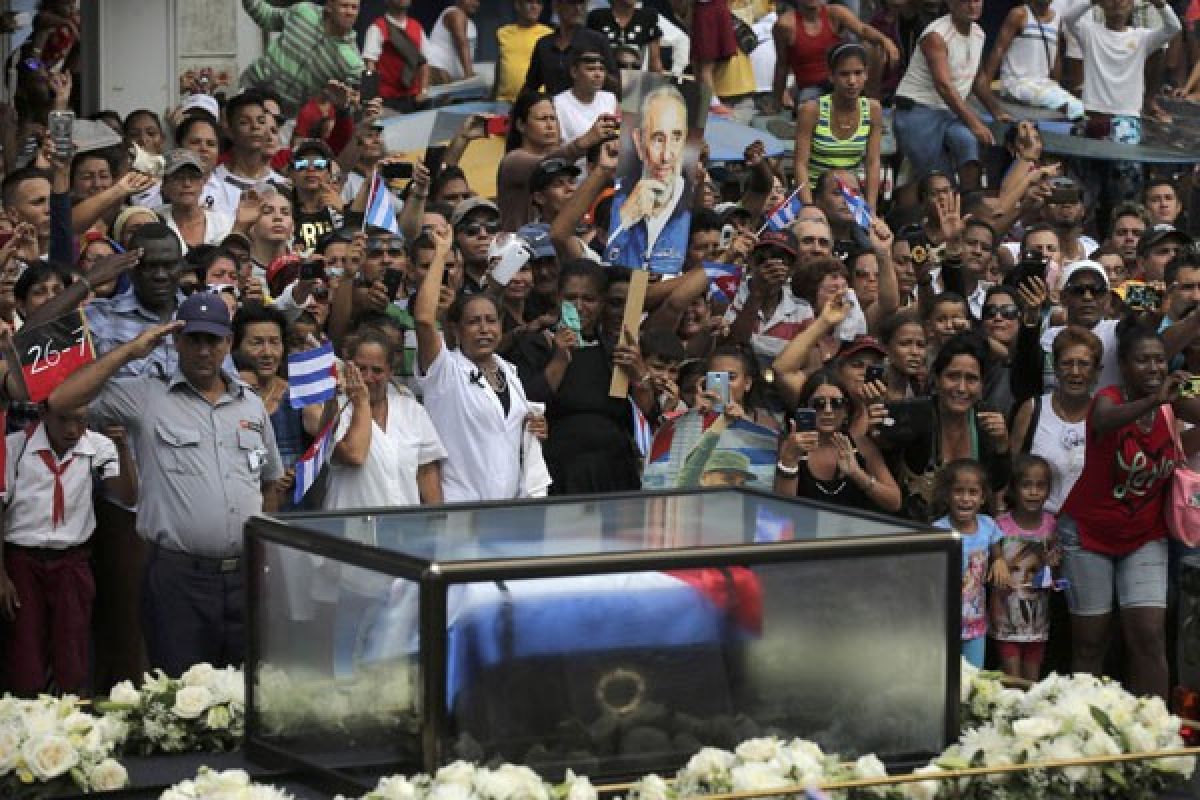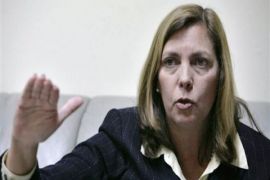Rebellious yesterday, hospitable today, heroic forever."Santiago, Cuba (ANTARA News) - Now that Cuban revolutionary leader Fidel Castro is dead, one of his most prominent critics says he sees big economic and political changes to the one-party Communist system, perhaps within four years.
Jose Daniel Ferrer, who leads the Patriotic Union of Cuba (UNPACU), the countrys largest dissident group, says he does not expect Communist rule to crumble quickly but that change will surely come.
"We will have more repression in the short term," Ferrer told Reuters, predicting President Raul Castro would tighten government control in order to stave off demands for political reform after his elder brother Fidels death on Nov. 25.
"But in the medium term, the regime will continue to weaken, and the people will become ever more audacious, protesting shortages and necessities that we experience every day," Ferrer said. "In the middle of this period comes the end of the system."
He was speaking at his hilltop headquarters in the southeastern city of Santiago de Cuba shortly before Castros ashes arrived there to be interred on Sunday.
Santiago is the cradle of the revolution that brought the Castros to power in 1959 and it remains largely loyal because they brought health and education to a population with a large concentration of Afro-Cubans that had previously suffered discrimination.
It is, however, also home to UNPACU.
Ferrers two-storey home in the Altamira district of Santiago was bustling with activity in the past few days with UNPACU members downloading foreign news broadcasts and checking on the whereabouts of colleagues reported to have been detained ahead of Castros funeral.
Fidel Castro led Cuba for almost half a century before falling ill in 2006 and handing power to his brother Raul.
Since then, the younger Castro has introduced market-style reforms allowing private businesses and agreed a detente with the United States, fueling a tourism boom.
But low wages, rising prices and limited opportunities in an economy still dominated by the state have made many Cubans hungry for faster reforms.
Raul Castro has allowed Cubans a little more Internet access and he released dozens of political prisoners under deals with the United States and the Roman Catholic Church, but otherwise has done little to ease the Communist Partys grip on power.
Castro, who is 85 and due to retire in 2018, led tens of thousands in making a pledge on Saturday night in Santiago to defend the socialist system he built with his brother.
CLANDESTINE ACTIVITY
Several other dissidents interviewed by Reuters said they also expect tighter controls in the short term, but foresaw economic and political openings over the next few years.
Ferrer congratulated U.S. President-elect Donald Trump for describing Fidel Castro as a "brutal dictator" but said it would be bad if Trump unwound outgoing President Barack Obamas measures that improved U.S. relations with Cuba.
Cubas Communist government accuses the dissidents of being mercenaries of the United States and routinely detains activists for short periods on charges such as disorder. Long prison sentences, however, have been rare in recent years.
Most Cubans view dissident leaders with skepticism even if they would like to see more reforms.
Ferrer, 46, said his funding came largely from Cuban-Americans, including from his brother. He denies direct U.S. government financing.
A former fisherman, Ferrer was one of 75 people rounded up in a 2003 crackdown know as Cubas "Black Spring," and he spent eight years in prison until he was released in a deal brokered by the Catholic Church in 2011.
He then formed UNPACU and it quickly became Cubas most emboldened opposition group, staging anti-government demonstrations while few others dare.
UNPACU leaders say they have created a space for dissent in Altamira, where the group even runs a kiosk selling subsidized food. It continues to publish anti-government material but Ferrer says the movements numbers are down about 50 percent in the last three years to around 3,000 people due to harassment and detentions that make membership a gruel ling experience.
In a country where only 5.6 percent of homes have access to the internet, UNPACU each week distributes 1,000 to 1,500 DVDs of dissident music videos and political messages, along with news and documentaries.
"This is our principal weapon," Ferrer said, brandishing a DVD.
Ferrer said about 70 percent of the groups members are in eastern Cuba, historically known as the birthplace of political change from the war of independence from Spain to Castros revolution.
"Rebellious yesterday, hospitable today, heroic forever," is Santiagos official slogan.
Ferrer admitted to unconventional methods in the early days to convince Cubans to complain publicly.
"We would put three or four activists on a street corner, talking about the news of the day, like the football World Cup," he said.
"Eventually the activists would bring the conversation to the topic they wanted people to opine on, and at that point, another two would come over with a camera. We realized if it was a group of men, there was nothing better than to send a pretty female journalist along."
The group also combines activism with help repairing homes and providing subsidized or free food for the elderly and ill in places where government programs are failing, he said.
"We have to get them to trust us first," he said.
Editor: Priyambodo RH
Copyright © ANTARA 2016











